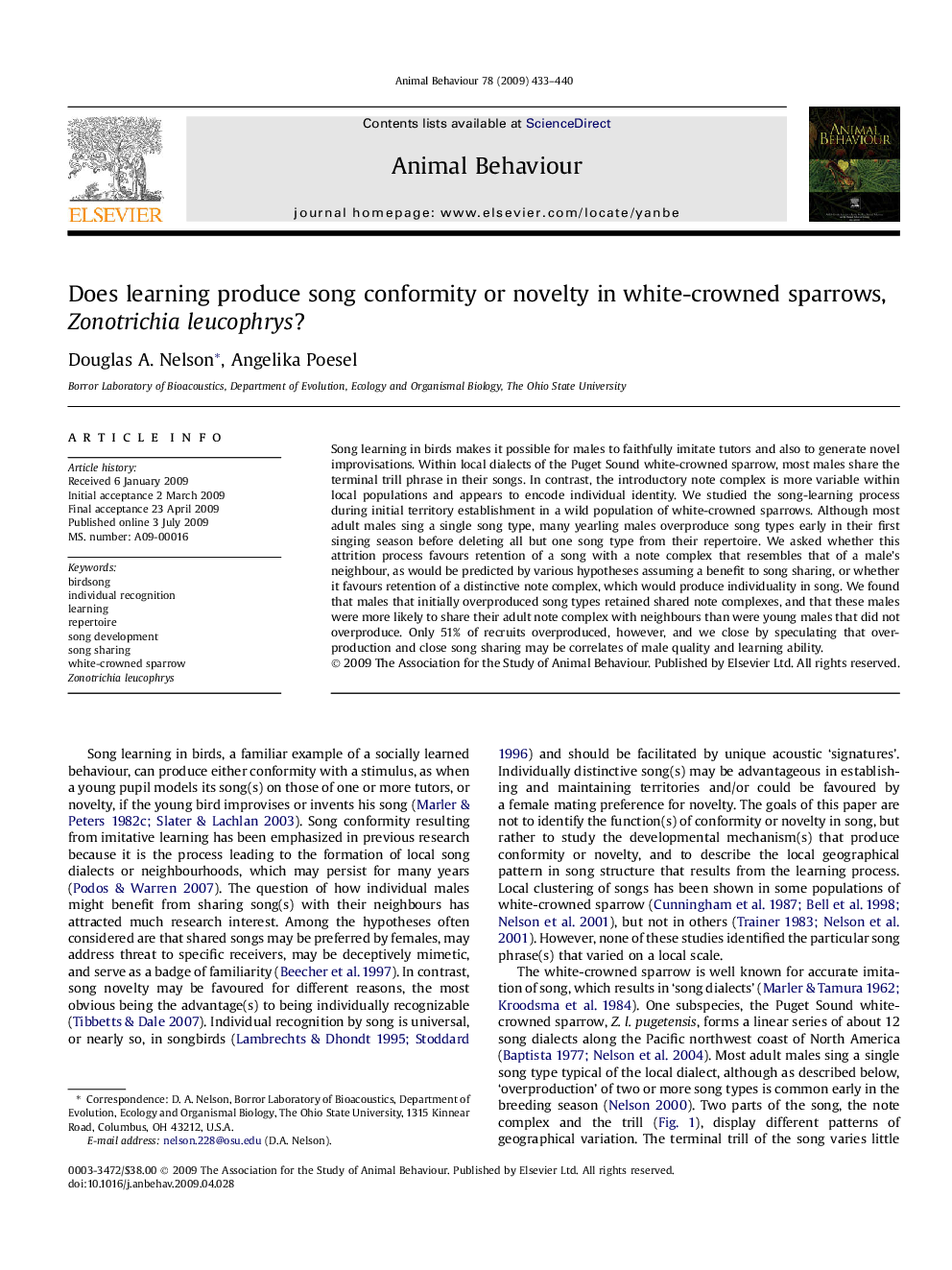| Article ID | Journal | Published Year | Pages | File Type |
|---|---|---|---|---|
| 2417444 | Animal Behaviour | 2009 | 8 Pages |
Song learning in birds makes it possible for males to faithfully imitate tutors and also to generate novel improvisations. Within local dialects of the Puget Sound white-crowned sparrow, most males share the terminal trill phrase in their songs. In contrast, the introductory note complex is more variable within local populations and appears to encode individual identity. We studied the song-learning process during initial territory establishment in a wild population of white-crowned sparrows. Although most adult males sing a single song type, many yearling males overproduce song types early in their first singing season before deleting all but one song type from their repertoire. We asked whether this attrition process favours retention of a song with a note complex that resembles that of a male's neighbour, as would be predicted by various hypotheses assuming a benefit to song sharing, or whether it favours retention of a distinctive note complex, which would produce individuality in song. We found that males that initially overproduced song types retained shared note complexes, and that these males were more likely to share their adult note complex with neighbours than were young males that did not overproduce. Only 51% of recruits overproduced, however, and we close by speculating that overproduction and close song sharing may be correlates of male quality and learning ability.
